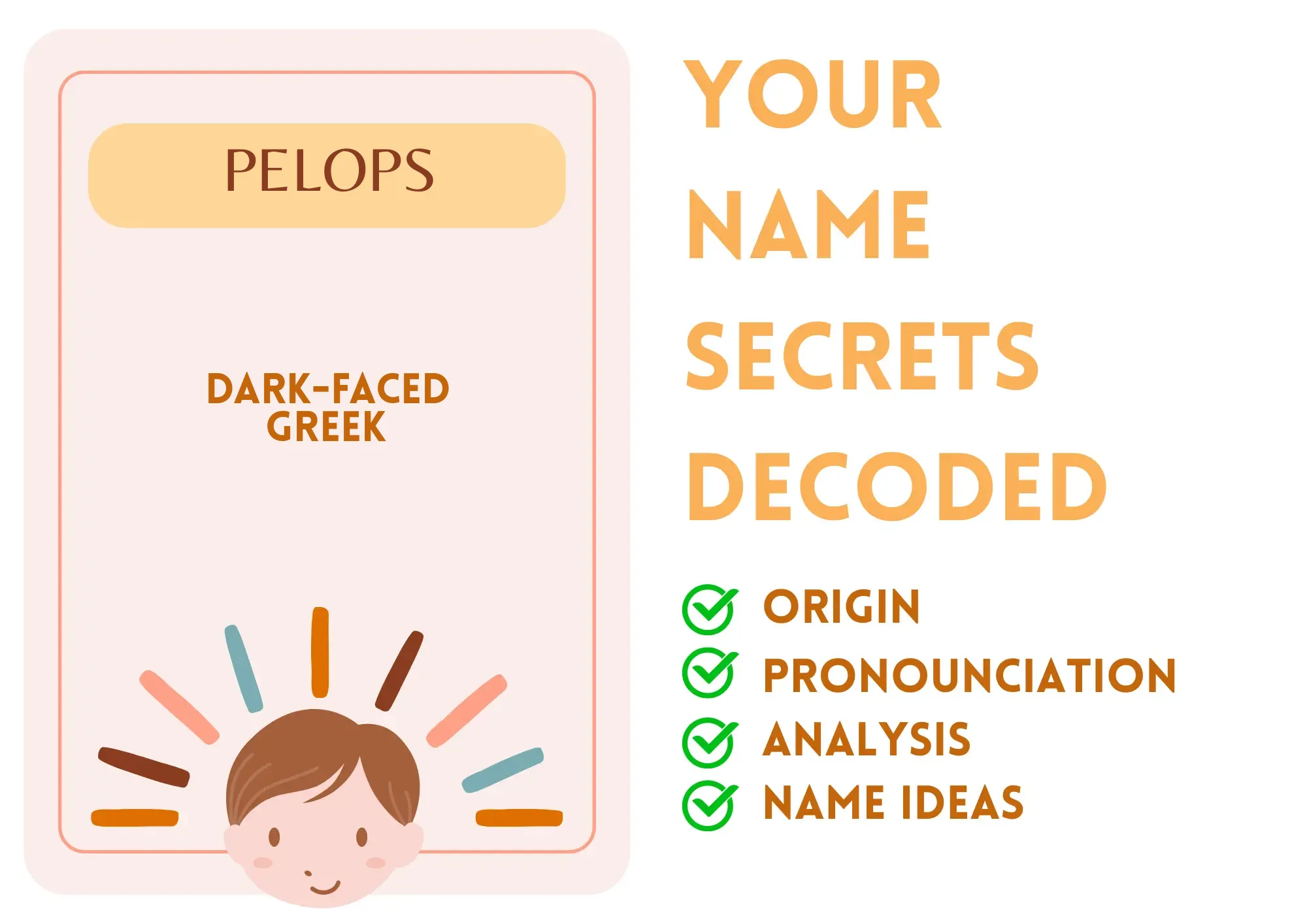
Pelops
Pelops is a name of ancient Greek origin, meaning 'dark-faced' or 'swarthy,' derived from the Greek words 'pelios' (dark) and 'ops' (face). Historically, Pelops was a significant figure in Greek mythology, known for being the legendary ancestor of the House of Atreus and having a famous chariot race against King Oenomaus to win the hand of Hippodamia. This name embodies themes of mythology, competition, and heritage.
Pelops is primarily associated with male individuals, reflecting its ancient roots in the patriarchal lineage of Greek legends. The name evokes a sense of classical heritage and timeless storytelling.
This name is often perceived as unique and strong, resonating with those who appreciate mythological contexts. While it may not be widely used as a modern first name, it carries historical weight and cultural significance.
Basic Information
Gender: Boy
Sounds Like: PEL-ops
Pronunciation Explanation: The first syllable is stressed, pronounced like 'pel' (rhymes with bell), and the second syllable is pronounced like 'ops' (rhymes with hops).
Summary and Meaning
Meaning: dark-faced (Greek)
Origin: The name Pelops has ancient Greek origins, steeped in mythology and history.
Usage: Traditionally a masculine name, Pelops is primarily associated with male figures in mythology.
Name Number (Chaldean)
Name Number (Pythagorean)
Popularity (Global Rank)
Overall: 1013025
Boys: 72681
Most Popular in
Religious and Cultural Significance
Religion: Greek
Background: In Greek mythology, Pelops is associated with the tales of gods and heroes, reflecting the ancient Greek religion that includes polytheistic beliefs.
Cultural Significance: Pelops is important in mythological narratives and is part of stories that explore themes of fate, family lineage, and competition.
Historical Significance: Pelops is a crucial figure in Greek mythology, symbolizing triumph, tragedy, and the complexity of familial relationships, especially within the House of Atreus, which has numerous stories tied to misfortune.
Popular Culture
Literature and Mythology: Pelops appears in various works of Greek literature, notably in Homer’s 'Iliad' and Ovid’s 'Metamorphoses', and represents the themes of rivalry and heritage.
Movies and Television: Pelops is often referenced in adaptations of Greek mythology; characters inspired by him or his tales appear in TV shows and films that draw from ancient Greek stories.
Feelings and Perceptions
Perception: Pelops is generally perceived as an unusual but powerful name tied to ancient narratives. It invokes a sense of strength and historical depth.
Positive Feelings: Mythical, strong, unique, classical, noble.
Negative Feelings: May be seen as archaic or overly unusual in a modern context.
Practical Considerations
Ease of Writing and Calling: Pelops is moderate in ease of writing and calling, comprising six letters and two syllables. It is not commonly used, but once learned, it is easy to remember.
Common Typos and Misspellings: Pelopsi,Pelop,Pelps,Pellops
Common Nicknames: Pelo,Pels
Pelops Popularity
Pelops Usage and Popularity By Country
| Country | Rank (Overall) |
|---|---|
| Greece | 18504 |
| Turkey | 44234 |
| United States | 539518 |
Pelops Usage and Popularity By City
| City | Rank (Overall) |
|---|
Compatibility Analysis
Famous Persons Named Pelops
No results found for Pelops.
Related Names
Similar Sounding Names:
Phillips,Plato,Peleus